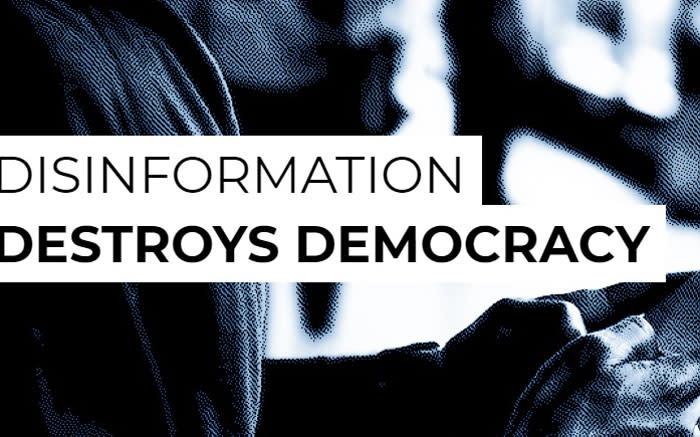By Anees Teladia
Modern technology has many benefits in today’s world, of which is the ease of the spreading of news and information through social media, instant messaging and digital platforms. This ease of access to information and content creation, however, does pose a significant challenge to users who wish to distinguish between what is known as “disinformation” and/or “fake news”. Media Monitoring Africa’s director, William Bird told VOC Breakfast Beat that he hopes the new website, www.real411.org.za will empower the public in this regard.
The website, which can be used to report suspicions and complaints of “disinformation” and “fake news” was launched in partnership with the Independent Electoral Commission (IEC) of South Africa, and hopes to combat the potential undermining of our democracy through the spread of “fake news” and “disinformation”.
“Currently, our media broadcasts – radio, TV, print media and online media – are all covered by various codes and bodies, but social media (and digital media broadly speaking) are not,” he said.
“This is really a new and exciting venture that means that the IEC can apply existing complaint mechanisms, to an area that is otherwise pretty much not governed by our laws. That’s really what this is starting to do,” said Bird.
“So, it’s saying we need to look at disinformation – which is essentially spreading false information with intent to cause harm or to undermine our elections and the electoral process.”
While political parties are often regarded as sources of questionable information during the build-up to elections, Bird suggests that a significant amount of misinformation and disinformation gets spread within parties by their own factions.
“We’ve seen a number of things globally, where different parties have disinformation or misinformation put out about either candidates or entities,” said Bird.
“…[however,] in South Africa, it’s not so much against parties as often. It’s between and within the ruling party itself. There’s a lot of factionalism, and the messages that get put out can be damaging.”
“In addition to that, there are attacks on political parties by people claiming to represent other political parties, as well as attacks against journalists.”
The website is live and ready for users to lodge complaints and suspicions.
“You can go to it right now and lodge a complaint. It’s very easy – just put in the details of what you’ve seen, upload a screengrab or image of it, as well as the URL if you have one for it and enter your name,” said Bird.
“It [the complaint] goes to the IEC – they deal with it. Once they’ve made a decision it goes to the commissioner and the commissioner looks at it and says, ‘well if it’s disinformation we can ask the platform to take it down’ or they [the commissioners] can say they want to take the post down, issue a counter-narrative and get the police involved to investigate…it’s not just a complaint for complaints sake.”
Where complaints have validity and are found to be serious, there can be serious legal consequences.
“Disinformation is a very serious issue – it undermines democracy. It undermines our democratic state and electoral process, so it is a very serious thing to do. Some [cases] may therefore have legal repercussions,” said Bird.
“The reason we need your information when you submit a complaint, is so that if you are not happy with the outcome you can lodge an appeal with the Electoral Court.”
Bird emphasised that while the website is in English, complaints lodged in another official language will be dealt with in the same manner as all the others. Those complaints will be translated by a first language speaker of the languages concerned.
VOC






 WhatsApp us
WhatsApp us 

